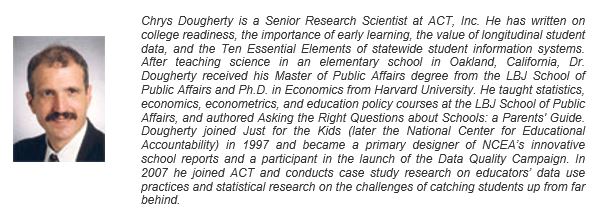Submitted by: Chrys Dougherty, Ph.D.
The turn of the year is a good time to remember things that are worth acting upon.
We should remember what reading does for the mind. Well-read individuals have larger vocabularies, are more knowledgeable, and are less likely to have common misconceptions.
We should remember that students’ interests often develop at a young age, and depend in large part on exposure to opportunities to learn. A young child who is given a book on the solar system has a greater chance of developing an interest in the subject.
We should remember the importance of “Matthew effects,” whereby learning gaps tend to widen over time. Early learning facilitates later learning in the same subject, and early exposure to knowledge can motivate students to want to learn more. The presence of Matthew effects underscores the importance of providing all children with books and other elements of a rich learning environment at an early age.
We should remember that the counterpart to wide reading at home is a content-rich curriculum at school. Early-grades teachers can use read-alouds as well as hands-on activities to provide such a curriculum.
We should remember that the availability of information in libraries and on the Internet does not in itself educate students. The chief beneficiaries of online information on a topic are typically individuals who have already been introduced to the topic. Good books, especially when presented in the context of a well-taught lesson, can be essential in providing this introduction.
We should remember the difficulty of catching up older students who are academically far behind. Learning is cumulative, and learning gaps that have accumulated over long periods take a long time to close. (As an education researcher, I have focused much of my own attention on this issue.)
Remembering all of these things should encourage us to redouble our efforts to get students on track in the early grades. One way to support these efforts is to provide books to students and encourage them to read, as BookSpring does. Wide reading in connection with a content-rich curriculum at school can give students in poverty some of the learning opportunities that their economically more advantaged counterparts routinely receive.
Note: The writer is a Senior Research Scientist at ACT, Inc. Opinions expressed in this blog post are his own.

